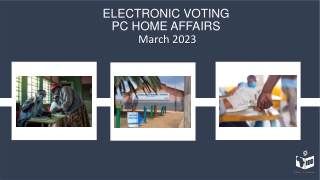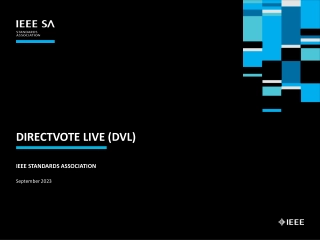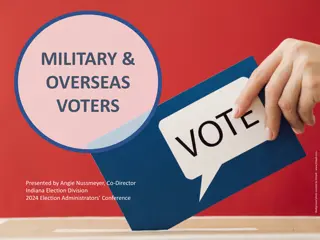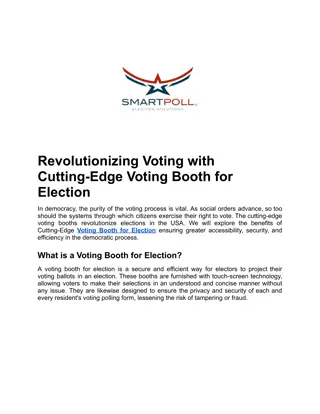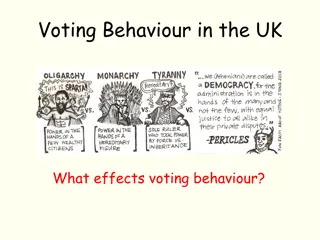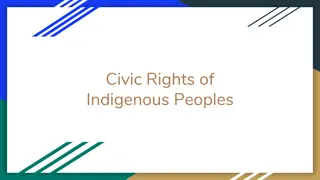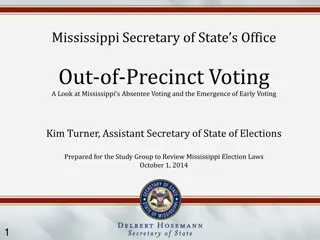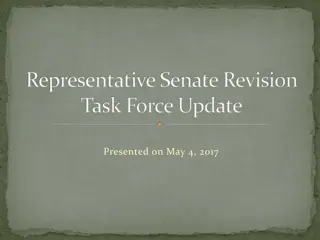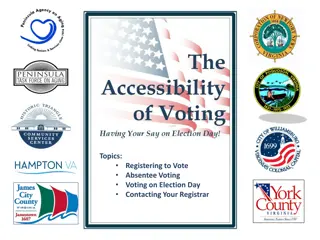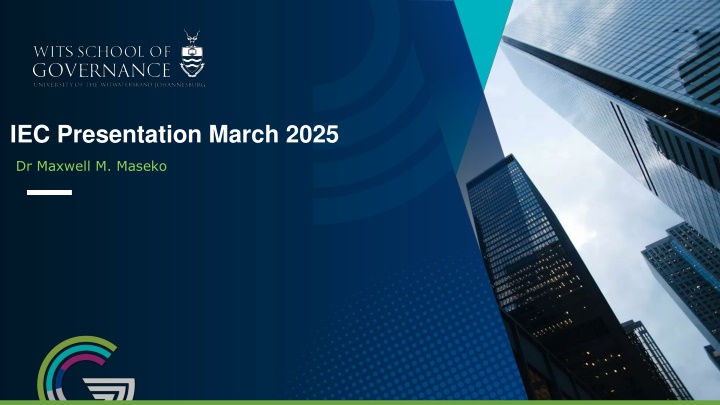
E-Voting in South Africa: Challenges and Opportunities for Modernization
Explore the prospects of e-voting in South Africa through the lens of public attitudes, success cases from other countries, and areas of concern. Discover the potential benefits of e-voting, the existing perceptions towards this technology, and the budget implications associated with its implementation. Delve into the discussion on how e-voting can revolutionize the electoral process in the country and address key societal issues.
Download Presentation

Please find below an Image/Link to download the presentation.
The content on the website is provided AS IS for your information and personal use only. It may not be sold, licensed, or shared on other websites without obtaining consent from the author. If you encounter any issues during the download, it is possible that the publisher has removed the file from their server.
You are allowed to download the files provided on this website for personal or commercial use, subject to the condition that they are used lawfully. All files are the property of their respective owners.
The content on the website is provided AS IS for your information and personal use only. It may not be sold, licensed, or shared on other websites without obtaining consent from the author.
E N D
Presentation Transcript
IEC Presentation March 2025 Dr Maxwell M. Maseko
Presentation outline 1. Introduction 2. Benefits of e-voting 3. Public Perceptions/Attitudes toward e-voting 4. Areas of concern 5. Budget/Cost Issues/Implications 6. The way forward
Introduction - Voting in SA is paper-based - Free and fair election - Why tamper with a working system? - Manual voting challenges long queues, vote manipulation, double voting, spoilt ballots etc - Low voter turnout, i.e., eligible youth (18-35) - Modernising electoral process, improving voter experience - Opportunities of e-voting - Technology alone not enough, people-centred, accessible, affordable, engaging, inclusive, transparent, respect privacy, ethical, solve SAn problems
Success Cases - Lessons from Estonia, India, Brazil, Russia and Turkey - 51% electronic votes in 2023 in Estonia, compared to 49% paper votes (World Economic Forum: 2024) - Challenges of cyberattacks in 2007 in Estonia, but pressed ahead - Solid legal framework supporting digital identity systems and voter verification
Setting the scene for e-voting - Potentially increase voter turnout - Must consider socio-economic conditions - Positive stats on online engagement in SA - Lack of trust in political leaders and concerns about corruption - Inclusive e-voting
Public Perceptions/Attitudes toward e-voting - Appetite for e-voting in SA (give examples) - Challenge is convincing public, MPs, civil society, etc, to trust election technology - Universities using the technology to elect SRCs - Trust in IEC is weak (Afrobarometer, 2023) - However, elections are free and fair
Areas of concern - South Africans remain unfamiliar with e-voting technologies - IEC role in voter education and limited budgets - Consider current legislative framework in South Africa - Hacking concerns
Budget/Cost Issues/Implications - Country examples show an expensive exercise - Budget cuts across all departments - No SA study looking at the cost of e-voting
The way forward - No perfect voting system - South Africa is part of the global society, which has become instant and digital (Thakur, 2014) - Legislation that clearly defines and supports e-voting - Emphasis on inclusion of vulnerable communities and training election staff - Role of civil society - SA should rather partially adopt e-voting - Proper monitoring of systems - Support for the IEC from lawmakers, civil society, public, private sector, and large tech companies

